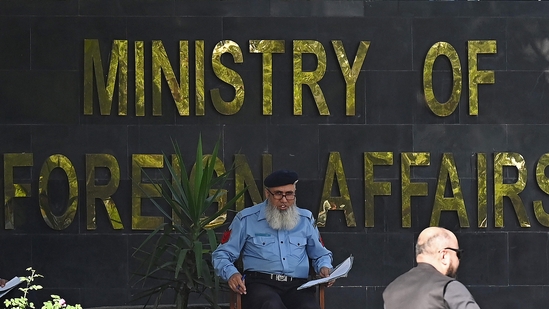In a strong reaction to Prime Minister Narendra Modi’s recent remarks on the Indus Waters Treaty, Pakistan’s Foreign Office issued a statement on Wednesday calling the comments “regrettable” and “a troubling departure from international norms.”
During a speech in Gujarat on Tuesday, PM Modi said that Pakistan is already feeling the heat from India’s decision to suspend parts of the Indus Waters Treaty. A long-standing water-sharing agreement between the two countries. The suspension came in the wake of the Pahalgam terror attack and Operation Sindoor, where Indian forces conducted precise strikes on terror camps in Pakistan and Pakistan-occupied Kashmir.
Modi made it clear that India would no longer treat terrorism as a “proxy war”, pointing to official military honours given to terrorists by Pakistan.
“Their funerals had Pakistani flags and army salutes—this was not a proxy war, it was a planned one,” he said.
He also noted that India has barely used 2–3% of the water it’s entitled to under the treaty, yet even this limited step had provoked a sharp reaction.
“We haven’t done much yet. But they’ve already started sweating,” Modi remarked.
Pakistan’s Response: “Weaponising Water” Is Dangerous
In its official response, Pakistan accused India of weaponising a treaty-bound resource, saying such rhetoric goes against international law and threatens regional stability.
“His references to weaponising water reflect a troubling shift and contradict India’s global image,” Pakistan’s Foreign Office said, urging India to uphold its treaty commitments and show restraint in both “language and action.”
“Jingoism may stir applause on the campaign trail,” the statement added, “but it undermines long-term peace.”
Background: Indus Treaty in Jeopardy
The Indus Waters Treaty, brokered by the World Bank in 1960, governs water sharing of the Indus River system between India and Pakistan. While India has the right to use the eastern rivers (Ravi, Beas, and Sutlej), it also allows Pakistan to use a larger share of the western rivers (Indus, Jhelum, and Chenab).
India’s recent decision to suspend the treaty provisions follows repeated cross-border attacks blamed on Pakistan-based terror groups, with the May 7 Pahalgam massacre being the latest and deadliest.
With tension mounting between the two neighbours, the status of this water-sharing pact, once considered a rare symbol of cooperation, now appears increasingly fragile.








